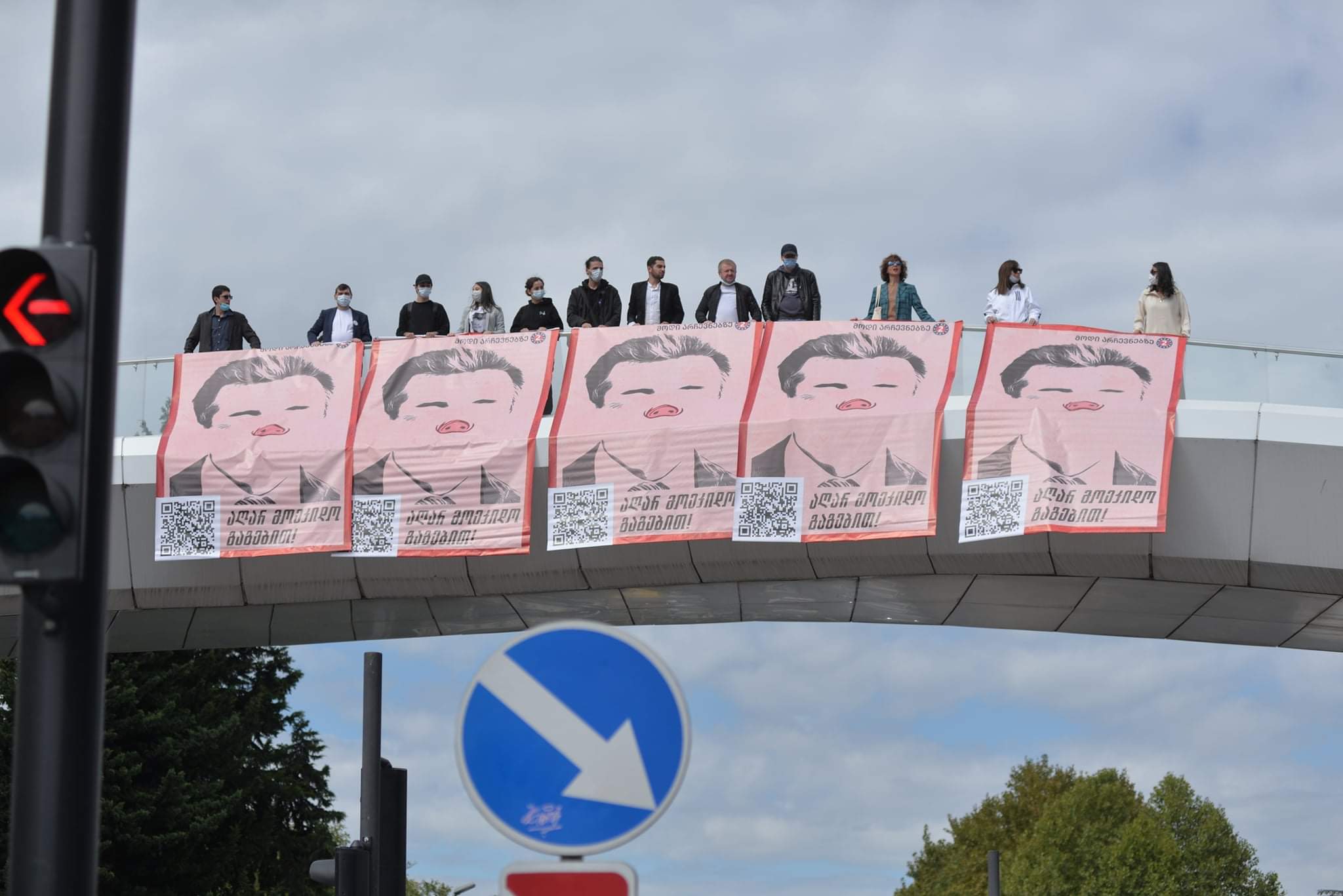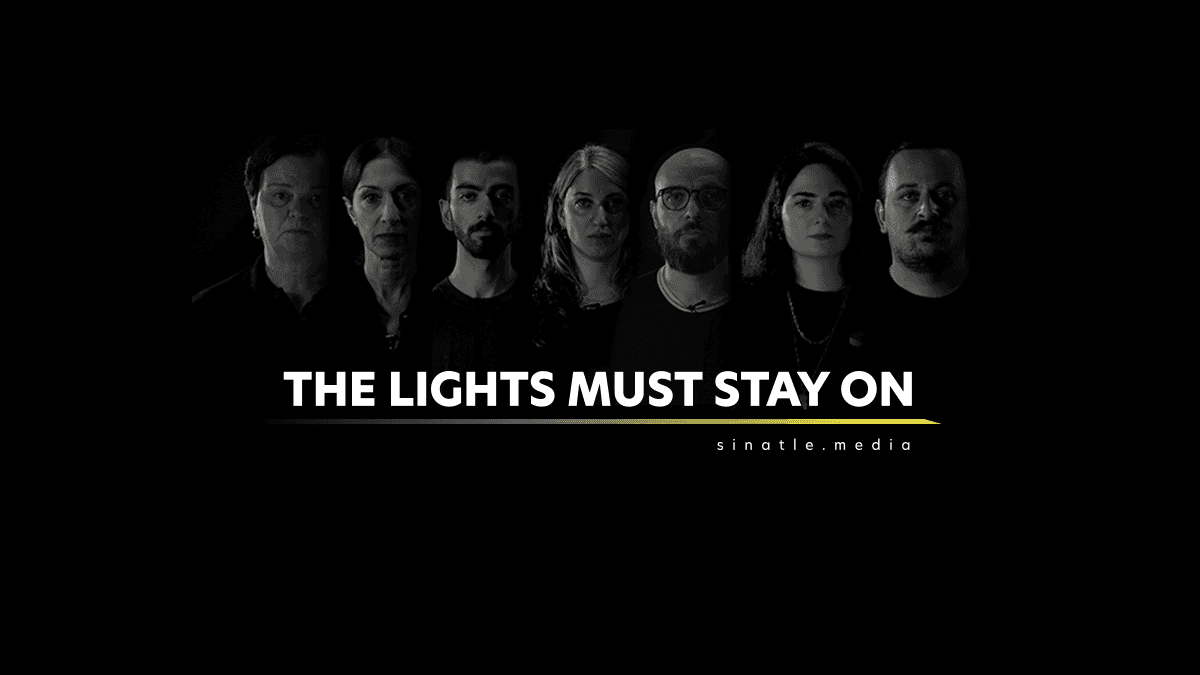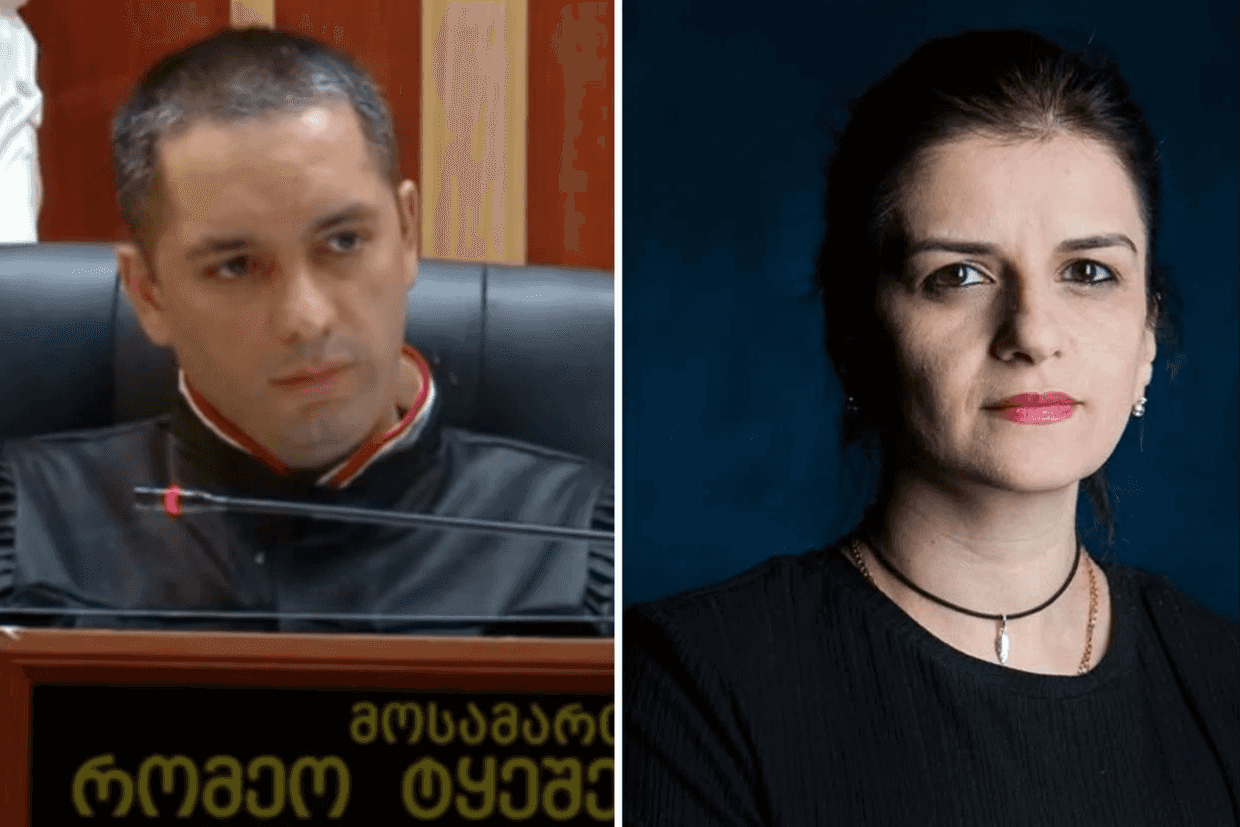
Georgia’s parliament is considering a law that would ban negative campaign ads and campaign materials, despite condemnation from opposition and rights groups.
The initiative, introduced by MPs from the ruling Georgian Dream party, would amend the electoral code and broadcasting law to ban politicians from targeting other political subjects — going as far as restricting the very mention of them in ads.
The authors of the proposed bill also misleadingly cited campaign regulations from several Western countries to justify the proposal.
Critics say that instead of improving the election environment, the amended regulations would lower the existing standards of freedom of expression and press freedom.
The Coalition for Media Advocacy, a group of 16 major Georgia-based watchdog organisations, have labelled the draft ‘alarming’, and have demanded it be immediately withdrawn.
The initiative surprised many as it came shortly after the first round of municipal elections in which Georgian Dream waged a largely negative campaign, primarily targeting the United National Movement (UNM) as well as former Georgian Dream Prime Minister Giorgi Gakharia.
The initiative would amend Georgia’s electoral code and broadcasting law to ban politicians from targeting other political subjects — going as far as restricting the very mention of them in ads. It would also ban third parties from commissioning any campaign ads.
If the law passes, parties taking out negative ads would face fines of ₾2,000 ($640), as would channels airing such ads as well as the owners of billboards or other public spaces where negative ads appear.
The five authors of the draft bill argued in a subsequent note that campaign ads often had little to do with what a party or candidate was offering the public, serving only to ‘discredit and form a negative attitude towards another political subject’
They said the proposed bill would ‘reduce the risks of polarising the public’ and enhance ‘the principle of healthy competition’ in electoral campaigns.
The Coalition for Media Advocacy noted that the initiative was vague as it introduced the notion of ‘negative attitudes’ while contradicting the Election Code, which currently defines campaigning as any public action facilitating or impeding the election of an electoral subject.
Talking to the Palitra news agency on 21 October, Zaal Uduamashvili, one of the leaders of the opposition United National Movement (UNM), called the initiative an ‘attempt to introduce censorship’.
False equivalency
In their explanatory note, the five Georgian Dream MPs cited French, Japanese, and Australian campaign regulations as similar experiences.
While French law does prohibit paid political advertisements in the press and other media platforms six months before an election, as indicated in the explanatory note of the Georgian bill, the restriction is nearly universal and does not differentiate between negative or positive messages. There are also no such restrictions on negative content when it comes to campaign billboards.
The Georgian bill’s explanatory note also misleadingly refers to a 2014–2015 report by Australia’s Finance Department on campaign advertising by Australian government departments and agencies.
The note claims that one of the core principles of political campaigning in Australia is that campaigns should not ‘directly attack or scorn the views, policies or actions of others such as the policies and opinions of rival parties or groups.’
The report in question offers guidelines only to informational campaigns carried out by government departments and agencies, and has no relation to electoral campaigns by political parties or candidates.
The authors of the draft bill also cited Japanese electoral laws, which are among the most extensive and restrictive in the world. Japanese campaign regulations include bans on all billboard advertising, a two-week campaign period, restrictions on the size and number of campaign posters, and also significant restrictions on negative campaigning.
Comparing Saakashvili to Hitler
The ruling party has continued a largely negative election campaign against the UNM in parallel to the initiative against attack ads.
On Friday, Prime Minister Irakli Gharibashvili went as far as comparing former President Mikheil Saakashvili to Adolf Hitler.
‘I want to make a comparison. It may be irrelevant to compare Saakashvili with Hitler, but this person imitates him in everything, but he is fake; why? When Hitler was first imprisoned, he too went on a hunger strike. Many visitors visited him. He staged the same scenario as this unfortunate man in prison’, Garibashvili said.
On 18 October, Georgian Dream put out a video with the slogan ‘UNM-membership is shameful’ (‘natsebi sirtskhvilia’) against hunger-striking ex-President and UNM founder Mikheil Saakashvili.
This did not stop incumbent Tbilisi Mayor Kakha Kaladze, who faces a runoff on 30 October, from claiming the same day that he had managed to wage a clean, ‘European-style campaign focused on the future instead of highlighting shortcomings and mischief of opponents’.
[Read more on OC Media: As Georgian Dream doubles down on ‘cokehead’ claims, Gakharia goes to the prosecutor]
‘Let’s finish off the Bolshevism, evil, hate, and falsehood that the UNM represents’, Kaladze claimed in the same video from 18 October.
Georgian Dream came forward with the initiative to amend laws on negative political campaign content shortly after an ad placement company, Alma, voiced their wish that Georgia had laws against campaign materials containing messages of hate speech and political polarisation. On 8 October, the following day, Parliament’s Legal Issues Committee endorsed the proposal.

Not long after hosting controversial anti-opposition banners in several Georgian cities last month, Alma refused to place a poster commissioned by the European Georgia Party showing Georgian Dream founder Bidzina Ivanishvili resembling a pig, in reference to George Orwell’s Animal Farm.
There have been several unsuccessful legal initiatives in recent years that free speech advocates have warned against, most of them targetting the media.
These included an anti-defamation draft law put forward by Georgian President Salome Zurabishvili in 2019 and a bill by the Georgian National Communication Commission that sought a year earlier to grant themselves and the courts regulatory powers against hate speech on TV.
[Read on OC Media: Georgian activist arrested ‘for shouting anti-government slogans’]







